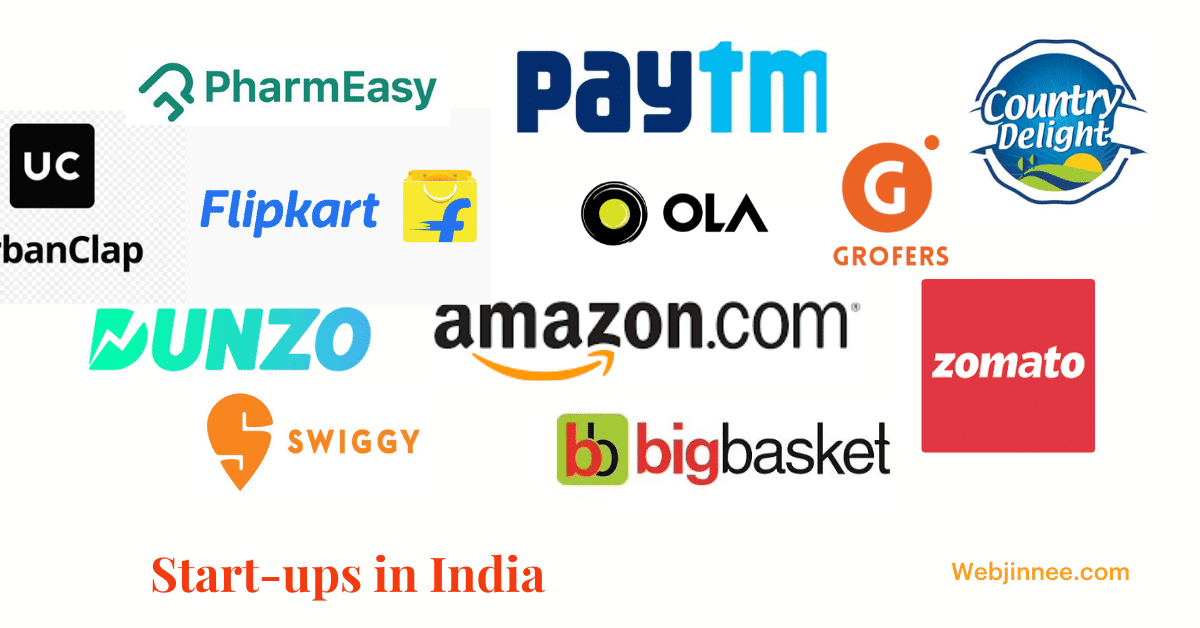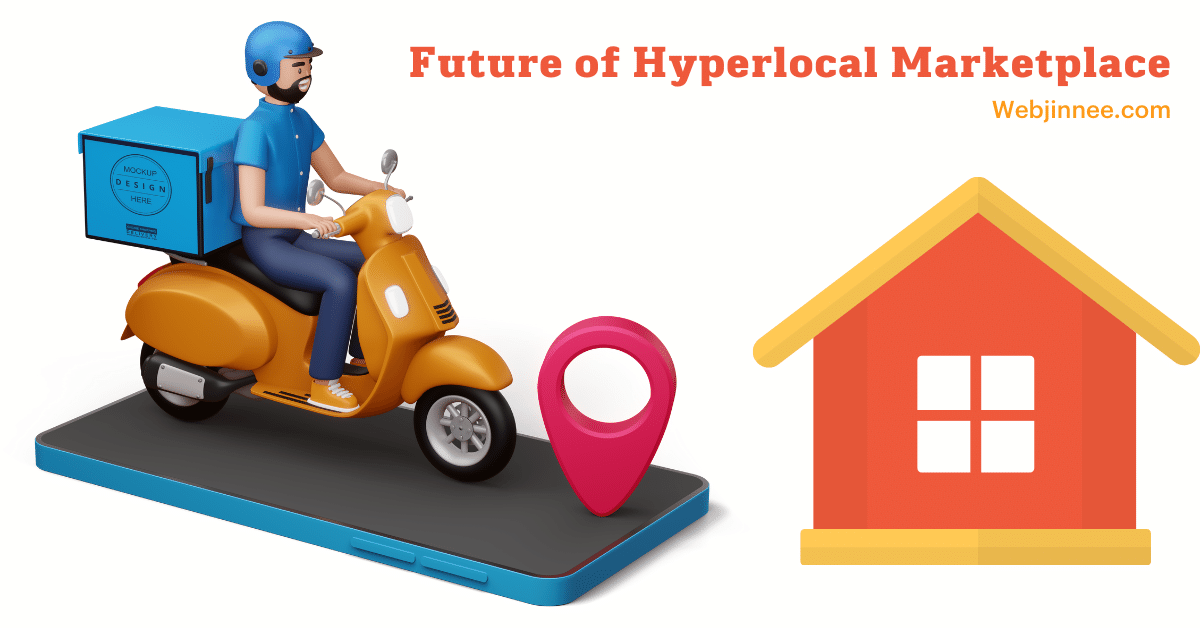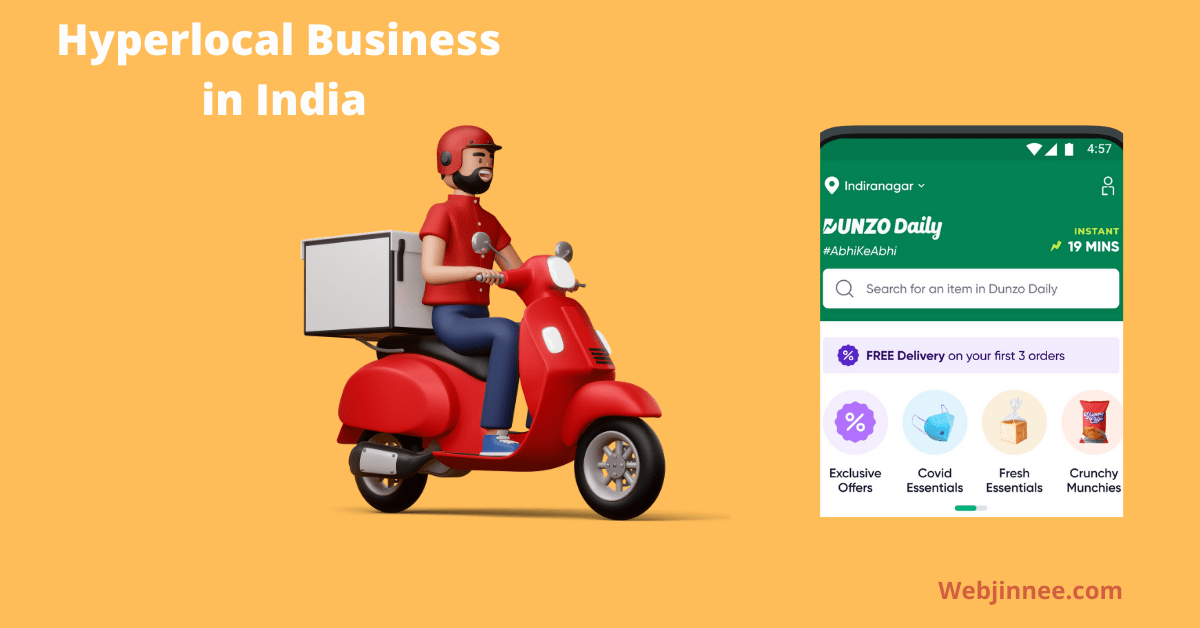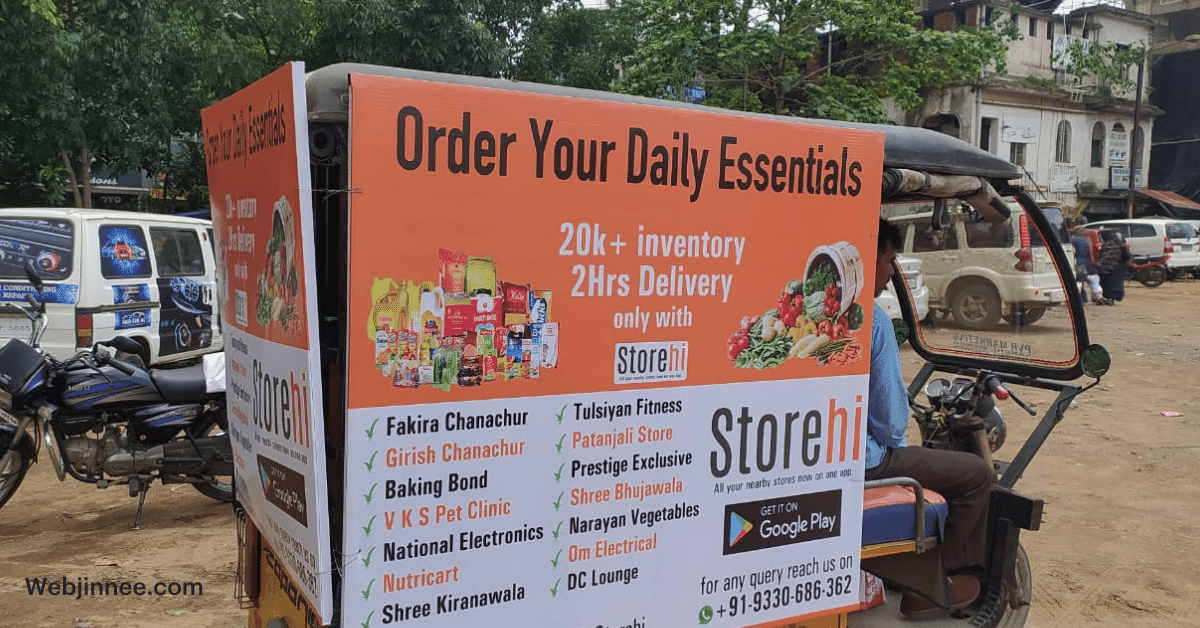How are Hyperlocal Businesses Accelerating Growth in Tier 2 Cities?
Metro cities like Mumbai, Bengaluru and Delhi, always have an edge over the startup environment in the country. However, startups are not just limited to these big cities, the country is evolving fast and developing at a pace like never before with the Tier 2 cities contributing for a much larger portion. In this article you will learn about the Hyperlocal Business model.
Table of Contents
ToggleOver the past few years, the Tier 2 cities have witnessed extensive growth in terms of hyperlocal businesses. Some important factors that contribute to growth are directly linked with the increased use of electronic media and smartphones and the growing internet accessibility that have led to a surge in demand for the segment.
The other factor that inclines towards the growth of the hyperlocal business model is India’s evolving work system that allows more gig workers and part time workers to join the market. According to studies, this gig market is going to triple in the next 3 to 4 years, and directly benefit these Hyperlocal businesses.
Today many startups have moved towards online groceries, food delivery, and running errands over the hour, to transport and logistics. Learning the potential of Hyperlocal businesses many tech startups have set forth for their journey to try their hands on this untapped market.
However, the icing on the cake for Hyperlocal business was in 2020, when the pandemic made people avoid unnecessary stepping out of the house, which brought more opportunity for such startups and witnessed an amplified demand for getting their essentials delivered at the doorstep.
You May also Like:- What is Hyperlocal? A Game Changer Business Model

What is a Hyperlocal Delivery Business?
To make you understand better and to understand the Hyperlocal businesses in around Tier 2 cities, I surveyed a young startup from the city of Jamshedpur that benefited from the pandemic and is now the fastest growing hyperlocal business in the city.
Founded by Sumit Singh, and Dr Swati Singh and Shalini Singh (both Co-Founders), StoreHi is an Asset light hyperlocal ECommerce platform designed especially for Tier 2 & 3 cities.
It is similar to other hyperlocal players like Dunzo, Shadowfax, Grofers, Big Basket and Jio Mart. However, it has a deeper understanding of the local market and has roped in a wide network of partner shops in a short while.
But the StoreHi App is different from others in the game. The company’s founder recalls his mission and says that profit is a secondary achievement, his major plan is to digitize the hyperlocal shops and create a digital listing of all products that are available within the city market, that will help the consumers find the right product at the right time with their 2 hours delivery support.
You May also Like:- Top 15 Content Marketing Interview Questions and Answers (Must Read)

“To accomplish our goals we are providing full stack Omni channel support to our partner sellers offering them – cataloguing (Inventory management), Marketing & Logistics services. Thus, adding value for our retailers and providing fast reliable delivery with support to our customers thus, bridging a gap between both” says Sumit, founder of StoreHi.
Shalini Singh who is the Co-Founder and looks for the marketing and sales operation of the business briefly elaborated about the structure of their Hyperlocal business and defines a Hyperlocal marketplace model as an online business model in which the on-demand needs of customers are met through local offline shops via a digital platform such as StoreHi. This model comes with the ability to deliver products at an unbelievably fast speed.
On asking how did they get this idea to start an online delivery startup in Jamshedpur that is majorly known for its steel and heavy industry, Sumit recalls that the basic idea was to start from somewhere and Jamshedpur is a Tier 2 city with great infrastructure, being associated with the city for long Sumit wanted to explore new market opportunities and bridge the gap between demand and supply.
“The Amazon model of ecommerce is not sufficient for India. We have a very high density of offline stores, that is 7 stores per 1000 People along with very low distance to travel to buy products. This ecosystem is unique to India compared to any western business. It took us 9 years of thought process and experience in retail to come up with Storehi” , adds Sumit Singh, founder of StoreHi.
You May also Like:- 11 Best Email Marketing Books: You Need to Read

What does a Hyperlocal business like StoreHi do?
Like many other hyperlocal businesses, StoreHi additionally provides full stack omni channel support to their partner sellers offering them – digital cataloguing (Inventory management), Marketing & Logistics services and after sales support.
Thus, adding value for the micro retailers with the services and providing fast reliable delivery with support to end customers thus, bridging a gap between both.
Every local shop cannot spend on making Apps or websites or offer digital catalogs to their customers, however, customers are moving towards more digital platforms even in Tier 2 cities and mostly the large players such as Grofers, Jio Mart, Amazon and Flipkart are the only ones that benefit from this trend.
We are bridging this gap by providing the customers with an opportunity to buy from local shops digitally, adds Dr Swati Singh, who looks at the operations and delivery process at StoreHi.
You May also Like:- Top 10 network marketing companies in India

Future of the hyperlocal marketplace in Tier 2 cities
As mentioned earlier, Hyperlocal businesses or hyperlocal marketplace is witnessing strong growth since the last decade. Independent research firms such as Ken Research value the current market at INR 2,306 Crore that is increasing everyday with urbanisation and personalisation.
Tier 2 and Tier 3 cities are not at the focus of big players like Amazon or Flipkart, and are a great platform for early startups to grow and understand the market.
The market is currently witnessing E-commerce companies gradually moving towards the hyperlocal model, the reason being cost effective for Service providers and convenient & fast deliveries to customers making it a win win situation for both.
Thus it can be said that there will be an exponential growth in the Hyperlocal model of E-Commerce in the coming future.
StoreHi, which started in 2020 with humble beginnings of delivering Puja Kit during Diwali to a residential complex.
Now makes more than 200 deliveries per day, covering a radius of 35kms around the city of Jamshedpur. Today the startup delivers everything from groceries, vegetables, to utensils and even electronic goods at a deadline of 2hrs from the order placed at the app.
“Currently we are delivering 30% fresh vegetables & Fruits, 60% Groceries and daily needs. The Remaining 10% include – Mobile accessories, Kitchen appliances, medicine & Pet products”. Says Dr. Swati Singh, Co-founder of StoreHi.
You May also Like:- Top 10 Digital Marketing Trends

Hyperlocal is a Process focused business, as the main aim is to offer reliable after sales service and quick delivery to its consumers.
There are great challenges that pop-up during the process and have to be dealt with in a very sensitive manner. The industry requires regular innovation, and interaction to sustain itself and additionally more product research everyday.
Currently StoreHi employs 5 regular staff and more than 20 delivery executives. Explaining its operations Dr. Swati Singh adds “We have innovated our delivery operations by breaking the order fulfilment process in two parts, Pickup & delivery”
“Runner 1 moves along multiple stores to pick up orders and brings to the hub, at the hub the orders are segregated according to the routes customers are based in. Delivery guys then pick up multiple orders in one go and deliver. The entire process takes just 2 hours to complete. 1.15 Hr for pickup & 45 Minutes for delivery” , Says Dr. Swati
You May also Like:- How to Create a Custom Facebook Business Page URL

Benefits of Hyperlocal delivery business model
Hyperlocal delivery businesses have a responsibility to deliver the ordered goods, or run errands at the least possible time. They have made the cities a more comfortable and convenient place to live.
Hyperlocal delivery apps fit the category of problem solving business, therefore, helping customers and shops reach each other through a shared platform.
Hyperlocal delivery apps provide additional value to their partner shops by offering them operational and inventory management, after sales support, business leads and better analytics.
“With our help these small businesses that earlier did not even exist on Google Maps are now working wonders with their complete new mini digital store that has helped them grow 30% revenues from sales” says Shalini Singh.
“There is no other Omni channel service provider currently that provides full stack service along with ready business. Our marketplace guarantees ready business for our partners. With us they no longer be an anonymous seller, but get the opportunity to sell and make their own brand value.” adds Sumit Singh, Founder of StoreHi.
You May also Like:- 29+ Group buy SEO Tools in India (Just Rs. 149/-*)

Scope of Hyperlocal Business in Tier 2 Cities
Today many hyperlocal startups have come up in various Tier 2 and Tier 3 cities, however, leading the way were companies like Dunzo, Swiggy, Zomato, Shopclues and a few more.
Some leading ecommerce players in India have also reported that they have recorded more than 80% new orders annually from Tier 2 and Tier 3 cities and claim more than 50% of the total order value is contributed by the Tier 2 and 3 cities in India.
On asking, How do they plan to grow in future, StoreHi founder Sumit Singh says “Tier 2 and 3 cities have the ability to rapidly adopt Internet and E-Commerce.
We have around 80 such cities in India and our model is designed to rapidly scale in these cities and bring exceptional service levels to the customers. In our next phase we are planning to move to cities like Ranchi, Jaipur, Guwahati, Lucknow, Bhubaneswar, Ludhiana and Kolkata”.
You May also Like:- 249 Free Blog Submission Sites list

“We plan to remain in tier 2 & 3 Cities and build our service. These cities have very poor delivery time, usually 2-3 days from traditional Ecommerce companies.
We intend to change and benefit from that with our 2-hour delivery model service”, adds Shalini Singh.
With expanding cities, developing infrastructure, rapidly changing shopping patterns, and increased internet usage among Tier 2 and 3 population of India, the scope of Hyperlocal ecommerce websites is really great and several entrepreneurs have already established themselves and seen good growth over the years.
As StoreHi and many other Hyperlocal startups take forward their lessons to become a household name of Tier 2 cities, it will be fun to see what really unfolds from the growing Hyperlocal delivery industry and who is the ultimate beneficiary of this evolving market.
You May also Like:- Secret of Writing SEO-friendly Article: Expert’s Techniques


